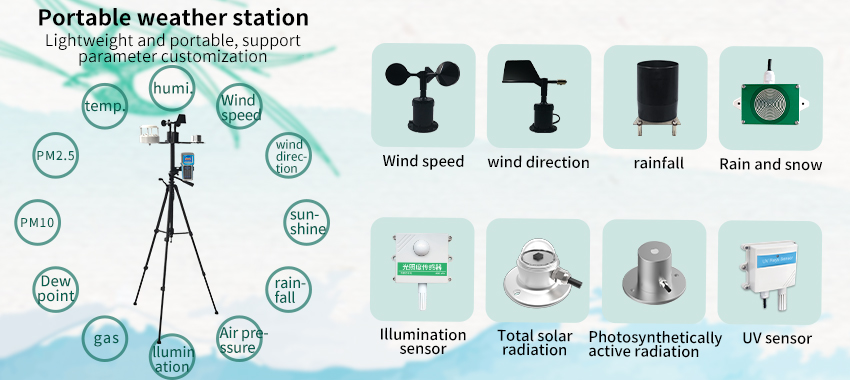Meteorological stations

Meteorological stations are devices that are used to measure atmospheric conditions such as temperature, humidity, precipitation, wind speed, and direction. These stations can be used for a variety of purposes, including forecasting weather patterns, monitoring air quality, and gathering data for scientific research. There are many advantages to using weather stations, including their accuracy, reliability, and convenience.
Advantages of meteorological station
1.The accuracy of the equipment
Meteorological stations are designed to provide precise measurements of atmospheric conditions, which can be used to create accurate forecasts and weather reports. This is particularly important in areas where weather conditions can change rapidly, such as in coastal regions or mountainous areas. Accurate weather information can help people plan their activities and avoid dangerous conditions.

2. The reliability of the equipment
Unlike human observers, weather stations can operate continuously and provide consistent data over time. This makes it easier to track changes in weather patterns and monitor long-term trends. This information can be particularly valuable for scientists studying climate change or other environmental issues.
3. Easy to operate
Many modern meteorological stations are small and portable, making them easy to set up and move around as needed. This means that they can be used in a variety of locations, from remote wilderness areas to urban centers. Additionally, many weather stations are designed to be user-friendly, with simple interfaces that make it easy to collect and analyze data.
4. Weather stations serve a variety of purposes

For example, they mainly measure particulate matter, ozone and other pollutants when monitoring air quality. This information can be used to identify sources of pollution and develop strategies for reducing emissions. Similarly, weather stations can be used to monitor water quality by measuring parameters such as pH, temperature, and dissolved oxygen levels.
5. Weather stations for scientific research
For example, meteorologists can use weather station data to study the behavior of storms and other weather phenomena. Similarly, climate scientists can use weather station data to study long-term trends in temperature, precipitation, and other atmospheric conditions. We can use this information to develop models to predict future climate patterns.
In conclusion, meteorological station offer many advantages, including accuracy, reliability, and convenience. They can be used for a variety of purposes, including forecasting weather patterns, monitoring air and water quality, and conducting scientific research. As technology continues to improve, weather stations are likely to become even more valuable tools for understanding and managing our environment.